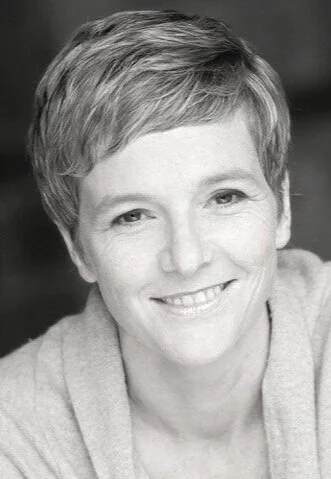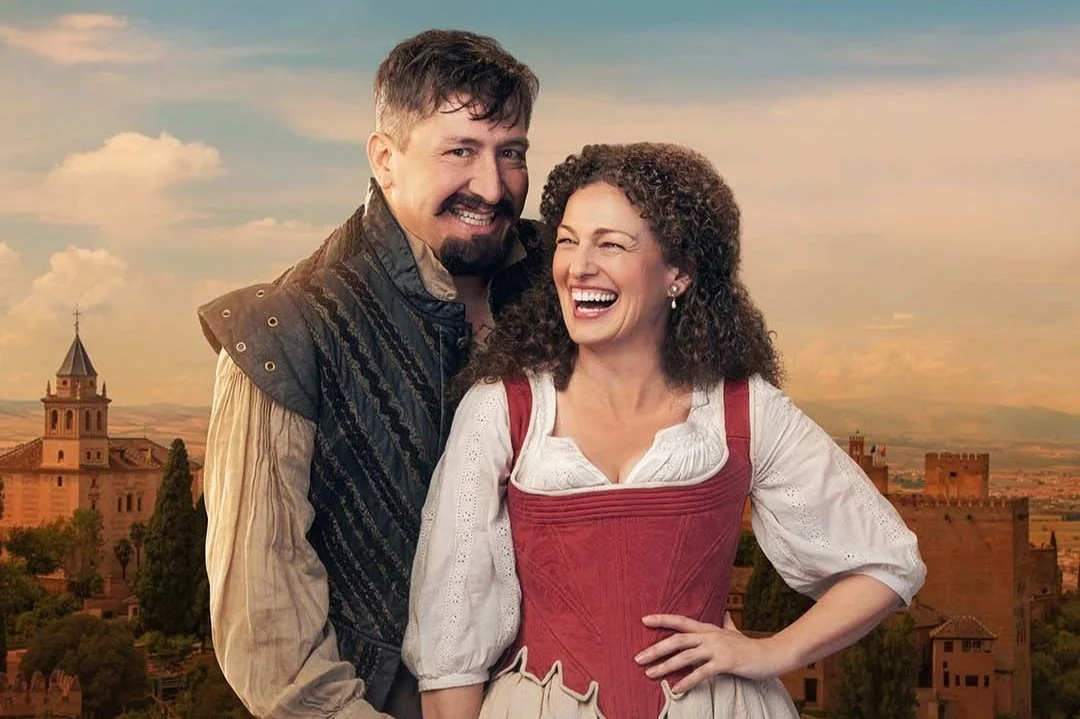Stir Q&A: Ensemble chemistry, laughter, and snacks, as director Mindy Parfitt stages Stupid F*cking Bird
Bringing Aaron Posner’s hit spin on Chekhov’s The Seagull: to life means “food is made, songs are sung, and there’s definitely more swearing”
Nathan Kay in Stupid F*cking Bird. Photo image by Jessica Oostergo
Director and The Search Party artistic director Mindy Parfitt
The Cultch presents Stupid F*cking Bird at the Historic Theatre from April 12 to 23
AMERICAN PLAYWRIGHT Aaron Posner has made a name reimagining classic plays—and his 2013 Stupid Fucking Bird, which premiered in Washington, DC, in 2013, is one of his most beloved works. Dubbed a “sort of adaptation” of Anton Chekhov’s 1895 masterpiece The Seagull, the metatheatrical romp puts an irreverent postmodern lens on the dark comedy about a group of family and friends who gather at a large beach house—and all the romantic and emotional entanglements that ensue.
The work has seen more than 150 productions since its debut. Now, Vancouver’s The Search Party—one of the city’s newest, and strongest, new theatre companies, is ready to stage it here for the first time at The Cultch. The Search Party has already proven its abilities, with lauded productions like 2019’s The Father and the 2022 rendition of Hannah Moscovitch’s Bunny.
For Stupid Fucking Bird, veteran director and company artistic director Mindy Parfitt has gathered a crack team of actors: Kerry Sandomirsky, Kevin McNulty, Nathan Kay, Baraka Rahmani, Jesse Lipscombe, Emma Slipp, and Anton Lipovetsky (who doubles up as music director.) Stir asked Parfitt about the play, the ensemble chemistry, and the importance of snacks and laughter.
From the title, you can tell that Posner has created an irreverent take on Chekhov’s The Seagull, but how much of the original’s ideas are intact—and should we be familiar with the original?
Stupid Fucking Bird follows the same plot line as The Seagull—there are fewer characters, but it is basically the same story. Posner has input several contemporary theatrical devices that modernize the script. He has made the text more contemporary through the dialogue and how the characters speak, included live music and singing and a deeper inquiry into the importance of Art. You do not need to know the original play to enjoy this production.
Can you give us a specific hint or two of just how subversive this rendition gets?
Well, I don’t want to give anything away… Let’s say food is made, songs are sung, and there’s definitely more swearing. I wouldn’t say the play is absurd. It doesn’t go in that direction. I think the comedy is more forefront. And Posner is playing with a metatheatricality that allows the actors to shift in and out of character.
The characters know they’re in a play, and the script looks at the role of theatre and what it does head on. What kind of difficult questions around that have you and your cast been grappling with in the studio?
I think this has been alive in the rehearsal room not so much as a conversation, but in how everyone is approaching the work. I knew I had assembled an incredible cast, but from day one I was really in awe of what each artist was bringing into the space. As we emerge back into our artistic practices we are aware of the importance of storytelling and what each of us needs to contribute in order to fulfill our individual parts of a story.
We are having a lot of fun—which is always an important part of a process I lead—but I think this is even more important now. We have had some really interesting conversations about how female sexuality is normally portrayed on stage. How we want to make sure that the younger woman isn’t blamed because of her beauty and youth. That the man with power, due to societal status and economic privilege, must also hold some of the responsibility. At the same time we want to make sure the older woman is seen as sexual and sensual—that her appeal is not only her mind and her status but also her sensuality.
This is a true ensemble piece, and you’ve assembled a strong team. As a director, what’s been the trick to getting the seven-member cast to really gel—especially across the generations.
Snacks. Laughter. Creating a space where people feel comfortable to express themselves. We’ve had cross-generational conversations about changing artistic practices and how we all need to embrace new ideas and respect older ones. I think creating a room in which diversity of experience and opinion is embraced and encouraged allows for a place where people want to take risks and make offers—which only deepens the work and ourselves as individuals.
You started a theatre company on the eve of a pandemic, but The Search Party has gone on to win awards for shows like Bunny and made a name for itself. Looking back, what has been the key factor?
The artists. I have been so fortunate that such talented people have come along for this ride. Some have known me and trusted my vision and intention but I think back to The Father—my company’s inaugural production—and Kevin McNulty, who didn’t know me or my work, accepted the role and allowed my company to make such an impactful entry into the community. The artists that have been with me since the beginning—who have supported a consistency in vision and aesthetic—are equally as significant to the success. The Cultch has also been an important foundation. It is very hard for companies in Vancouver to build a reputation for themselves when they produce each show in a different venue. Having The Cultch present my work, really being a home base for my productions, has allowed the company to build an audience base and a reputation. And of course the audience: I think Vancouver is really hungry for the work The Search Party is creating.















